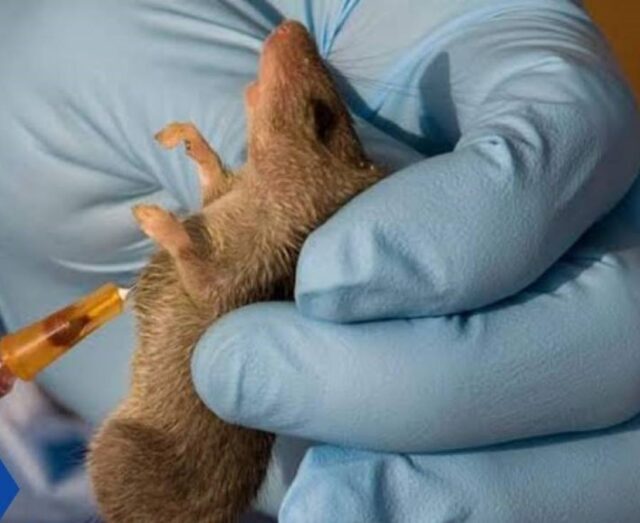…In 2024, the disease has been particularly severe, with 1,059 confirmed cases reported across 28 states, resulting in 175 deaths (16.6% case fatality rate)
THUR NOV 21 2024-theGBJournal| In Nigeria, vulnerable populations, especially those in underserved communities, remain at high risk of infectious diseases, including Lassa fever—an acute viral hemorrhagic illness caused by the Lassa virus.
Endemic in Nigeria, Lassa fever continues to affect thousands annually, with the dry season (December–April) being the peak transmission period. In 2024, the disease has been particularly severe, with 1,059 confirmed cases reported across 28 states, resulting in 175 deaths (16.6% case fatality rate).
Alarmingly, 35 healthcare workers have been infected during the outbreak, underscoring the urgent need for robust infection prevention measures.
The Lassa virus is primarily transmitted to humans through exposure to food or household items contaminated with the urine or feces of infected Mastomys rats. Secondary transmission can occur through direct contact with the bodily fluids of infected individuals, posing significant risks to healthcare and laboratory workers who lack adequate protective measures.
Scaling Up Preparedness and Response Efforts
As the dry season approaches its peak, the World Health Organization (WHO) is intensifying its support to the Nigerian government, the Nigeria Centre for Disease Control (NCDC), and state governments to strengthen preparedness and response.
Reaffirming WHO’s commitment to curbing Lassa fever, Dr. Ann Fortin, WHO Team Lead for Emergency Preparedness and Response (EPR) Cluster, emphasized: “With funding from the Government of Canada (through the CanGiVE Project), WHO is helping strengthen early detection and confirmation of suspected cases, ensuring optimal supportive care, and enhancing infection prevention and control measures in designated health facilities across affected states.”
WHO’s technical assistance focuses on coordinated responses, improved surveillance, effective health information management, and risk communication and community engagement. Advocacy efforts are also underway to align key stakeholders for a unified and more effective response.
Targeted Interventions in High-Burden States
In Benue State, one of the hardest-hit areas with 64 confirmed cases and 11 deaths in 2024, WHO has implemented targeted interventions to build local capacity. These efforts include: –
Training primary healthcare workers, rapid response teams, community volunteers, and surveillance focal points in high-risk local government areas.
Promoting early disease detection and community-led responses.
Raising awareness about behavioral changes, such as improved waste management and rodent control.
Expressing appreciation for WHO’s support, Dr. Paul M. Asema, State Epidemiologist for Benue State Ministry of Health and Human Services, stated: “The state deeply appreciates WHO’s contributions to protecting the health of our people, especially during these critical outbreaks. A One Health approach remains key to strengthening our response and ensuring progress towards health for all.”
Broader Support Across Priority States
In addition to Benue, WHO is providing critical support to Edo, Ondo, Taraba, Bauchi, and Ebonyi states, focusing on:
Supplying personal protective equipment (PPE) for healthcare workers.
Improving diagnostic and laboratory processes, including effective sample collection.
Enhancing case management and standardizing infection prevention practices.
Disseminating health messages to communities, reaching over 35,000 individuals with life-saving information about Lassa fever prevention and control.
Empowering Communities: A Story of Hope
In the Ortese Camp for Internally Displaced Persons (IDPs) in Benue State, WHO’s community engagement efforts have provided critical support to residents like Mrs. Nyioun Adaga. “When I heard a neighbor in the camp had Lassa fever, I was terrified,” recalls Mrs. Adaga. “But the healthcare team sensitized us on prevention measures, giving me confidence to protect myself and my family. I am grateful for their guidance.
Aligned with National and Global Health Priorities
WHO’s interventions align with its Country Cooperation Strategy 2023–2027, the 13th General Programme of Work (GPW13), and key Federal Government frameworks, including the National Health Act, National Action Plan for Health Security, and Health Sector Renewal Initiative.
By leveraging multi-sectoral approaches, WHO and its partners are working tirelessly to ensure no one is left behind in the fight against Lassa fever and other infectious diseases in Nigeria.
X-@theGBJournal|Facebook-the Government and Business Journal|email:gbj@govbusinessjournal.com|govandbusinessj@gmail.com










